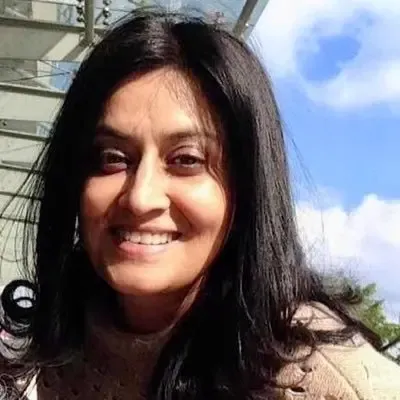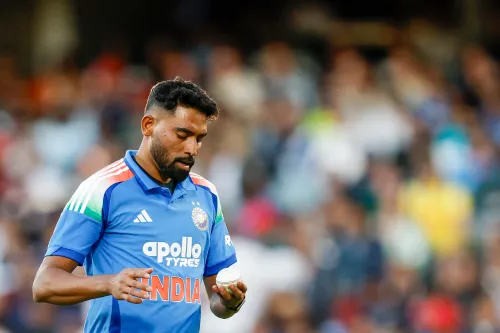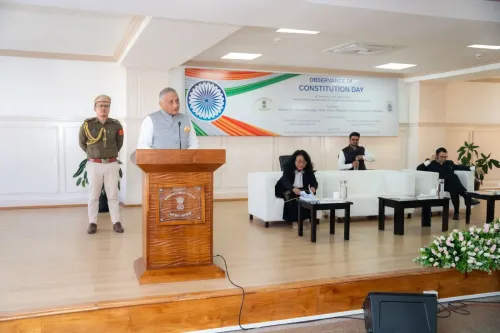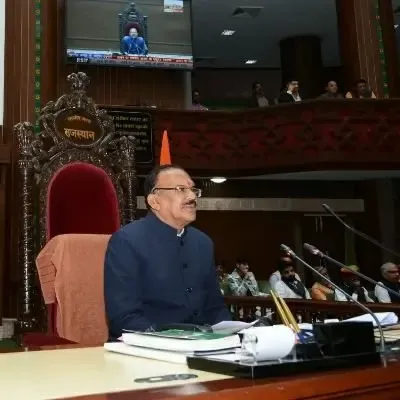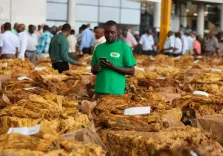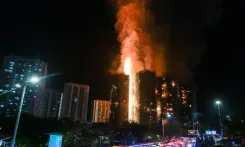Legal Disputes in 2024: An Overview of Bail Granted to 5 Prominent Political Figures
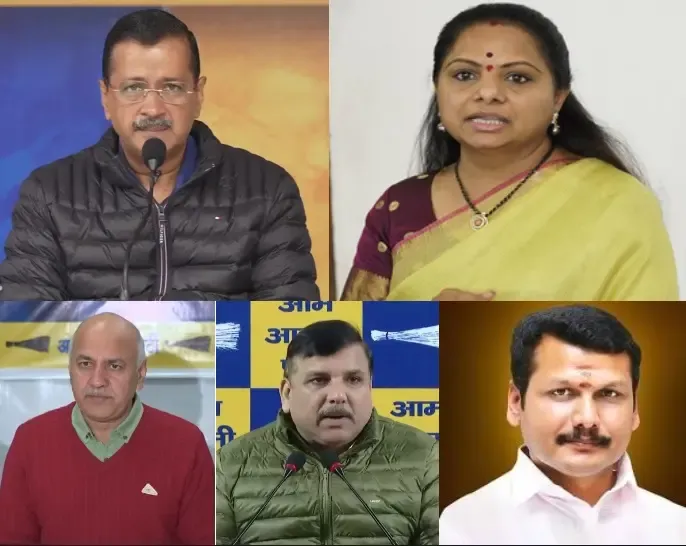
New Delhi, December 30 (NationPress) As 2024 approaches, we highlight significant Supreme Court rulings that granted bail to notable politicians arrested by the Central Bureau of Investigation (CBI) or the Enforcement Directorate (ED) on allegations of corruption or money laundering.
Bail Granted to Arvind Kejriwal
In September of this year, the Supreme Court mandated the release of former Delhi Chief Minister Arvind Kejriwal on bail concerning a corruption case associated with the purported liquor policy scandal.
While denying his specific plea contesting his arrest by the CBI, Justice Surya Kant, leading a two-judge bench, ordered Kejriwal's release on bail, stipulating that he refrain from making any public statements regarding the merits of the case while the trial is ongoing.
“The terms and conditions imposed by the coordinate bench in the ED matter shall apply in this case also. The appellant (Kejriwal) shall be present before the trial court on each hearing date unless granted an exemption. He shall fully cooperate with the trial court to ensure the expeditious completion of trial proceedings,” the Justice Kant-led bench stated.
In a ruling issued on July 12, another bench led by Justice Sanjiv Khanna (currently the Chief Justice of India) expressed that Kejriwal could be granted interim bail in the money laundering case, considering that the right to life and liberty is sacred and he had endured over 90 days of incarceration.
This two-judge bench, which also included Justice Datta, referred Kejriwal’s plea challenging his arrest and subsequent remand by the ED regarding the alleged liquor policy scam to a larger bench for an authoritative ruling on the legal questions involved.
In the same ruling, the Justice Khanna-led bench urged Kejriwal to consider resigning from his Chief Ministerial position.
“We acknowledge that Arvind Kejriwal is an elected leader and the Chief Minister of Delhi, a role that carries significant importance and influence. We have also referenced the allegations. While we do not issue any directives, we are uncertain whether the court can instruct an elected leader to resign or refrain from functioning as Chief Minister or Minister; we leave that decision to Arvind Kejriwal,” it stated.
Earlier, in light of the upcoming 2024 general elections, a bench led by Justice Khanna had ordered then-CM Kejriwal to be released on a 21-day interim bail in the money laundering case, instructing him to surrender on June 2.
Imposing several conditions, the Justice Khanna-led bench prohibited Kejriwal from visiting his office or secretariat while on interim bail. It clarified that granting interim relief should not be construed as an opinion on the merits of the case or the pending appeal before the Supreme Court.
According to the SC order, Kejriwal was barred from signing official documents unless necessary for obtaining clearance or approval from the Lieutenant Governor.
Bail Granted to Manish Sisodia
In August of this year, the Supreme Court granted bail to senior AAP leader and former Deputy Chief Minister of Delhi, Manish Sisodia, asserting that he should not be confined indefinitely while awaiting a swift trial regarding the alleged excise policy case.
Delivering the verdict on Sisodia’s bail requests, a bench led by Justice B.R. Gavai stated: "In this instance, both the ED and CBI have named 493 witnesses, and the case encompasses thousands of pages of documents, including over a lakh pages of digitized files."
"It is evident that there is no reasonable possibility of the trial concluding in the near future. We believe that keeping the appellant behind bars indefinitely while hoping for a speedy trial would infringe upon his Fundamental Right to Liberty guaranteed by Article 21 of the Constitution," the bench remarked.
This bench, which included Justice K.V. Viswanathan, established that due to Sisodia’s lengthy incarceration spanning approximately 17 months and the trial not yet having commenced, he had been deprived of his right to a timely trial.
Disregarding the argument that Sisodia might tamper with evidence if released, the Supreme Court noted that the prosecution’s case largely relies on documentary evidence that has already been seized by the CBI and the ED.
The Supreme Court rejected the central agencies’ request that Sisodia be prohibited from visiting the Delhi Chief Minister’s Office or the Delhi Secretariat.
“The appellant (Sisodia) is required to surrender his passport to the Special Court. The appellant must report to the Investigating Officer every Monday and Thursday between 10 and 11 a.m., and he must not attempt to influence witnesses or tamper with evidence,” the court ruled.
In a prior ruling delivered on October 30 of last year, the Supreme Court had denied bail to the former Deputy Chief Minister but indicated that should the trial progress slowly over the next three months, he might reapply for bail.
Recently, the apex court approved a plea from Sisodia seeking a relaxation of the bail condition that mandated him to report to the Investigating Officer bi-weekly.
“We do not find this condition necessary, thus it is removed. However, it is directed that the applicant (Sisodia) must regularly attend the trial court,” the court ordered.
Bail Granted to Sanjay Singh
In April of this year, a bench led by Justice Sanjiv Khanna (currently the Chief Justice of India) granted bail to AAP Rajya Sabha member Sanjay Singh in relation to the money laundering case tied to the alleged excise policy scandal.
Noting that the ED had no objections to Singh's release on bail, the Supreme Court emphasized that it had not made any comments on the case’s merits.
“This concession should not be cited as a precedent. Sanjay Singh is permitted to continue his political endeavors,” it affirmed.
The Supreme Court added: “We must acknowledge that the concession made on behalf of the ED occurred before the arguments commenced. We clarify that we have not commented on the merits.”
Bail Granted to K Kavitha
In August, the Supreme Court granted bail to BRS leader K. Kavitha concerning corruption and money laundering cases tied to the alleged Delhi liquor policy scandal.
A bench led by Justice B.R. Gavai instructed Kavitha to regularly attend trial proceedings and assist in expedient trial resolution.
“The appellant is to be immediately released on bail in both (CBI and ED) cases upon furnishing bail bonds of Rs 10 lakh each. She must not attempt to tamper with evidence or influence witnesses. The appellant is to deposit her passport with the trial court,” the bench, which also included Justice K.V. Viswanathan, ordered.
The Supreme Court emphasized that it had made no comments on the merits during Kavitha's bail release and that such comments would not affect the trial's conduct.
Kavitha, daughter of BRS leader and former Chief Minister of Telangana K. Chandrasekhar Rao, had been denied bail by the Delhi High Court on July 1.
A bench presided over by Justice Swarna Kanta Sharma indicated that the evidence collected during the investigation suggested she was one of the main conspirators in the overall conspiracy related to the formulation and implementation of the now-repealed new excise policy.
Bail Granted to Senthil Balaji
In September of this year, the Supreme Court ordered the release of senior DMK leader V. Senthil Balaji on bail in connection with a money laundering case related to an alleged cash-for-jobs scam, considering he had been imprisoned for over 15 months, while the maximum sentence for the alleged offenses could extend to 7 years.
However, a bench led by Justice Abhay S. Oka dismissed the argument that the deposit of Rs 1.34 crore in his bank account was earnings as an MLA and agricultural income.
The bench, which also included Justice A.G. Masih, remarked, “It will be exceedingly challenging to assert that there is no prima facie case against the appellant (Balaji)” based on the complaint filed by the Enforcement Directorate (ED) under the Prevention of Money Laundering Act (PMLA).
The apex court noted that in three scheduled offenses, there are over 2,000 accused individuals and the number of witnesses slated for examination exceeds 600.
It stated, “Even under optimal conditions, the prospect of the trial of scheduled offenses concluding within a reasonable timeframe of three to four years appears to be completely ruled out.”
“Even if the PMLA case proceeds, it cannot be definitively resolved without concluding the trial of scheduled offenses. Given the circumstances, it is unlikely that the trial of the scheduled offenses will commence in the near future. Therefore, we foresee no possibility of both trials concluding within a few years,” it added.
The Supreme Court acknowledged that the trials related to the scheduled offenses and the subsequent PMLA offenses are “unlikely to be completed in three to four years or more,” and if Balaji's detention persists, it would infringe upon his fundamental right to a speedy trial as guaranteed by the Constitution.
Recently, the apex court expressed concern over Balaji's immediate appointment to the Tamil Nadu Cabinet led by Chief Minister M.K. Stalin after his bail was granted.
A bench of Justices Abhay S. Oka and A.G. Masih was reviewing an application requesting the recall of its decision to grant Balaji bail, citing the concern that he may influence case witnesses in his ministerial capacity within the CM Stalin-led Cabinet.
Balaji, who was released from jail after spending over 450 days in custody, was sworn in as minister on September 29 and assigned portfolios including Electricity, Excise, and Prohibition in the Tamil Nadu government.

